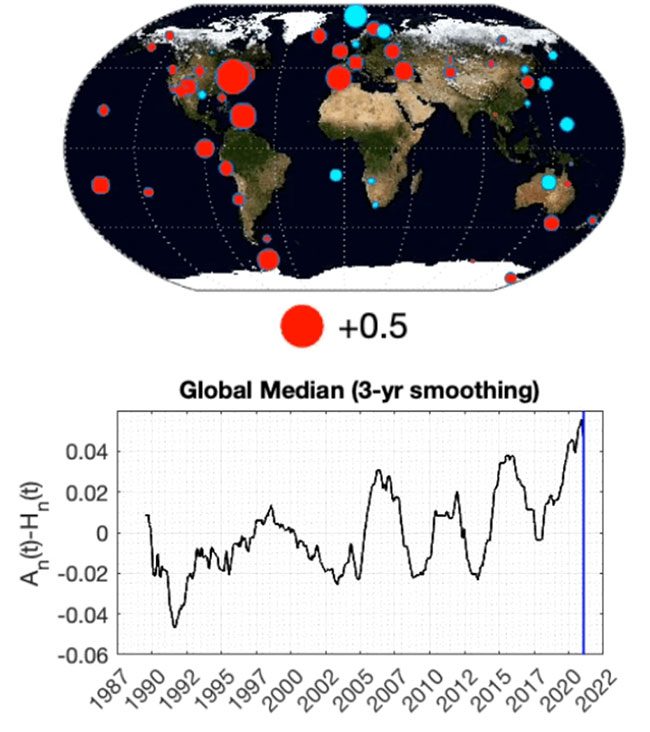Our planet is literally shaking due to the effects of global warming.
Known as the Blue Planet, Earth is home to over 8 billion people and is considered the most peaceful place in the universe, at least according to our understanding.
However, in reality, Earth is not that peaceful, as there are always tremors occurring beneath the surface. These tremors often stem from various reasons. But in recent decades, global warming can be seen as one of the primary causes.
According to a new study published in Nature Communication, the scientists involved in the project report that Earth is witnessing an increase in the number of ocean waves, which exerts pressure on the seabed, leading to widespread tremors that affect many continents.
The research team indicated that the average global wave energy has increased by an average of 0.27% per year since the late 20th century. However, since 2000, this increase has surpassed 0.35% per year.
To reach this conclusion, the researchers utilized a global seismic network to monitor and study earthquakes over decades through images displayed from the deepest parts of our planet.
These highly sensitive devices can record numerous natural seismic phenomena and human-induced events, including volcanic eruptions, nuclear explosions, and other detonations. They also capture seismic signals from wind, water, and human activity.
Accordingly, the most common background seismic signal globally is the continuous pounding created by ocean waves due to storms. These are referred to as global microseisms.

The study shows that seismic tremors are closely related to increased ocean wave activity and the formation of storms. (Image: Nature Communication).
The results of the study indicate that waves in the North Atlantic have intensified at the highest rate in recent decades compared to average levels. This aligns with recent research showing that storm intensity in the North Atlantic region and coastal hazards are on the rise.
Notably, Storm Ciaran has left devastating impacts on several European countries.
The researchers emphasize that the shaking of the Earth is indirectly influenced by the increasing greenhouse gas emissions from human activities in recent decades.
The consequence is that in the near future, highly destructive waves and intense storms will continue to form, causing Earth and all living beings on the planet to suffer the repercussions.
This highlights the importance of mitigating climate change, as well as building resilience through coastal infrastructure and sustainable environmental protection strategies.


















































